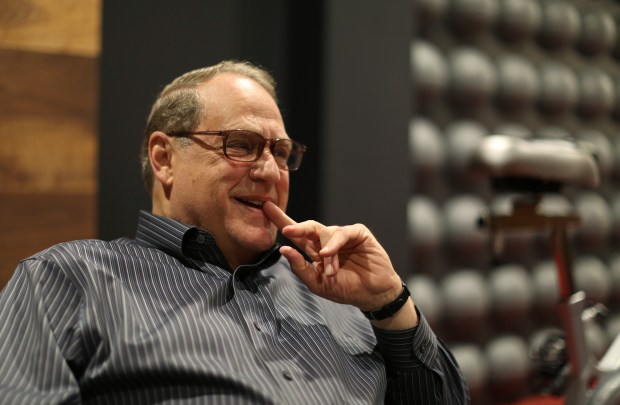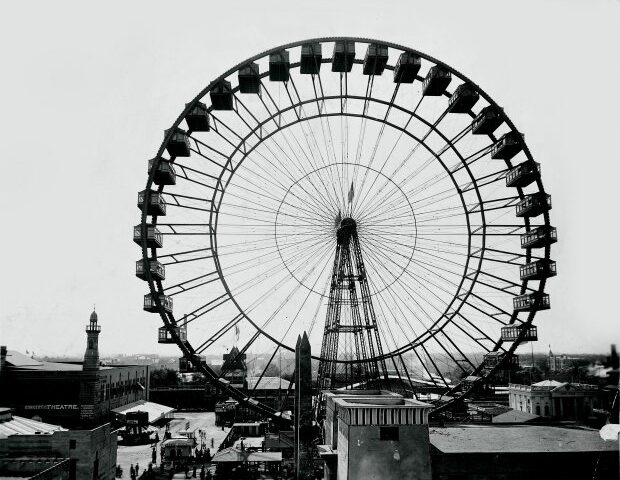Change could be coming to the Chicago White Sox after a report by The Athletic stated longtime owner Jerry Reinsdorf is in “active discussions” to sell the team.
It’s not the first time — and certainly won’t be the last — that Reinsdorf has been embroiled in reports and rumors of interest in either offloading or moving the White Sox. His tenure as owner is the second-longest in Major League Baseball behind the Steinbrenner family, which has owned the Yankees since 1973.
Ownership of the White Sox has clearly become a contentious issue for Reinsdorf in recent years. But could he consider a similar path for the Bulls as well?
The quick answer: it’s extremely unlikely.
The long answer is more complicated — and a reflection of the disparity between MLB and NBA ownership, both in Chicago and across both leagues at large.
The White Sox were Reinsdorf’s first sports endeavor in Chicago. He purchased the team for roughly $20 million in 1981, then acquired the Bulls for $16 million in 1985. Reinsdorf rounded out his investments in Chicago sports with the joint construction of the United Center in 1992, which was shared equally with the Blackhawks ownership group.
While the early decades of the family’s Bulls ownership were jubilant with the success of the Michael Jordan era, it’s always been assumed that Reinsdorf held a favorite between his two teams. A report from The Athletic earlier this year stated Reinsdorf told staffers “without hesitation” that he would rather see the White Sox win a title than the Bulls.
That apparent favoritism hasn’t actually translated into any higher level of success for the White Sox, who just set a new MLB record for most losses (121) in a season. And just because Reinsdorf allegedly cares more for the White Sox than the Bulls, it doesn’t mean he views them as equally beneficial investments.
If Reinsdorf put the team up for sale, he would be chasing the $2.05 billion valuation the White Sox received in March, according to a report by Forbes. With the Minnesota Twins also potentially on the market — and three MLB teams changing ownership in the last five years — the prospect of selling a team is drawing interest from owners around the league.
The Bulls would be an equally lucrative sale, receiving a $4.6 billion valuation from Forbes in October 2023. The NBA market is similarly poised for change after Matt Ishbia acquired ownership of the Phoenix Suns for $4 billion in 2022. And majority owner Wyc Grousbeck is currently looking to sell the Boston Celtics for a “record number” after the team won the championship last season.
So why wouldn’t Reinsdorf sell both teams? The answer comes down to the disparity in operating costs and payoff between the two.
Player spending is drastically more expensive in MLB — which does not have a salary cap — than in the NBA. The White Sox are one of only two franchises in the entire league that have never spent more than $100 million on a player contract. The team isn’t the cheapest in the league by any means, reporting the 15th-highest payroll last year. But with franchises like the Los Angeles Dodgers forking over close to $400 million just to get into the World Series, it’s clear that teams are willing and able to spend at a higher rate than Reinsdorf has ever dared with the White Sox.
The salary cap changes the game in the NBA, where payrolls must stay under $140.588 million. Teams still have to invest significant resources to be successful — in coach and executive salaries, along with scouting and player development and care — but the salary cap provides a clear road map for spending. And although the front office allegedly has the green light to enter the luxury tax to chase a deep playoff run, the Bulls have only ventured over the cap twice since 2001.
But while Reinsdorf can spend significantly less to field a competitive Bulls roster, the payoff is also immediately higher.
The Bulls have led the NBA in attendance for seven of the last ten years — and two of those seasons were directly affected by the COVID-19 pandemic, during which Chicago was one of the most limited markets for in-arena attendance due to city policies. The Bulls also still rank among the top five teams in the league in merchandise sales despite failing to make the playoffs for the last two seasons.
In comparison, White Sox attendance has ranked in the bottom third of the league for nine of the last ten seasons, averaging only 17,931 fans per game in 2024. Even a newer stadium hasn’t been enough to lure jaded fans out to the ballpark — and Reinsdorf is bidding to move yet again.
Yes, NBA investment has never been a hotter ticket. But those prices will only keep soaring, especially as the league looks to potentially expand in the next five years. In the meantime, the Bulls will keep packing the United Center consistently regardless of the team’s record. Reinsdorf has a clear path to succession with the Bulls — his son Michael has been the president and chief operating officer since 2010 — to keep the team in the family for the long term, something that has never existed with the White Sox.
So for now, Reinsdorf is here to stay — at least with the Bulls, where business is booming.




